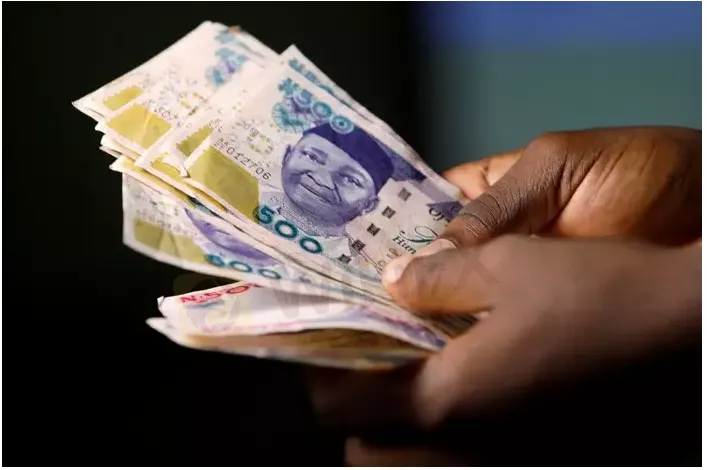简体中文
繁體中文
English
Pусский
日本語
ภาษาไทย
Tiếng Việt
Bahasa Indonesia
Español
हिन्दी
Filippiiniläinen
Français
Deutsch
Português
Türkçe
한국어
العربية
Nigeria’s Senate summons central bank chief over ‘free fall of the naira’
Abstract:Nigeria’s Senate passed a motion on Wednesday to summon Central Bank Governor Godwin Emefiele over the “free fall of the naira” and called on the central bank to urgently intervene.

The naira has fallen to successive record lows on the parallel market due to dollar scarcity since July last year after the central bank stopped forex sales to retail currency traders to ease pressure on reserves and support the official market.
The move funnelled demand to the unofficial market, where the currency is freely traded. Lawmakers on Wednesday said the policy had “contributed to the excessive scarcity of forex in Nigeria,” the Senate president said in a statement.
The currency has been trading within a range on the official market.
No date was set for the summon to be conducted by the senates committee on banking. The central bank did not respond to a request for comment.
The naira hit a record low of 695 naira per dollar on the black market on Wednesday, traders said, citing scarcity of foreign currency.
Nigeria‘s currency woes worsened after foreign investors fled as oil prices collapsed in the wake of the COVID-19 pandemic, widening the country’s funding requirement. Oil prices have since recovered but investors are yet to return.
One lawmaker faulted the central banks decision to halt dollar sales to bureau de change operators and said the move had contributed to dollar scarcity.
Lawmakers feared the currency could hit “1,000 naira by end of the year based on the current rate of depreciation”, citing a lack of foreign investment on insecurity plaguing Nigeria, which is also battling with double-digit inflation and low growth.
The Senate plans to question Emefiele on the impact of cheap loans granted by the central bank to certain sectors of the economy to boost local production in a bid to cut imports.

Disclaimer:
The views in this article only represent the author's personal views, and do not constitute investment advice on this platform. This platform does not guarantee the accuracy, completeness and timeliness of the information in the article, and will not be liable for any loss caused by the use of or reliance on the information in the article.
Read more

The Daily Habits of a Profitable Trader
Every professional trader follows a structured approach to ensure they are well-prepared, disciplined, and able to seize opportunities with confidence. Whether you are a seasoned investor or an aspiring trader, adhering to a robust daily checklist can significantly enhance your performance. Use this checklist to check if you are a qualified trader

The Impact of Interest Rate Decisions on the Forex Market
Interest rate changes determine currency attractiveness, influencing capital flows and exchange rate trends. Understanding this mechanism helps investors navigate the forex market effectively.

How a Housewife Lost RM288,235 in a Facebook Investment Scam
A 47-year-old housewife in Malaysia recently fell victim to an online investment scam, losing a substantial sum of RM288,235 after engaging with a fraudulent scheme advertised on Facebook.

A Trader’s Worst Mistake: Overlooking Broker Reviews Could Cost You Everything
In today’s digital age, reviews influence nearly every decision we make. When purchasing a smartphone, television, or home appliance, we pore over customer feedback and expert opinions to ensure we’re making the right choice. So why is it that, when it comes to choosing an online broker where real money and financial security are at stake many traders neglect the crucial step of reading reviews?
WikiFX Broker
Latest News
The Withdrawal Trap: How Scam Brokers Lure Victims into Paying More
FCA to Investors: Think Twice Before Trusting These Brokers
Trump\s tariffs: How could they affect the UK and your money
Trump gambles it all on global tariffs he\s wanted for decades
TradingView Brings Live Market Charts to Telegram Users with New Mini App
Trump tariffs: How will India navigate a world on the brink of a trade war?
Interactive Brokers Launches Forecast Contracts in Canada for Market Predictions
Authorities Alert: MAS Impersonation Scam Hits Singapore
Stocks fall again as Trump tariff jitters continue
IG Group Acquires Freetrade for £160M to Expand UK Investment Market
Currency Calculator







